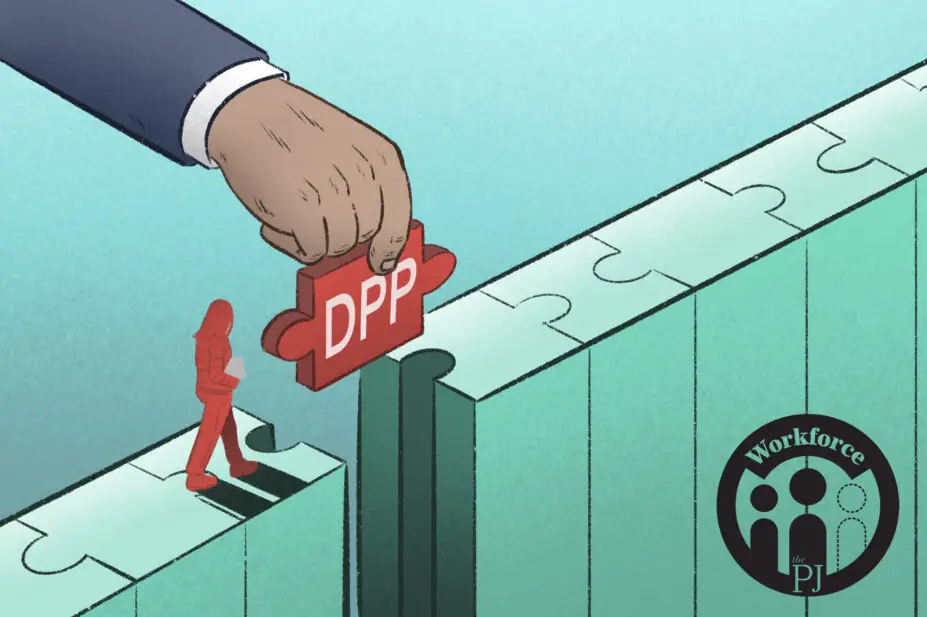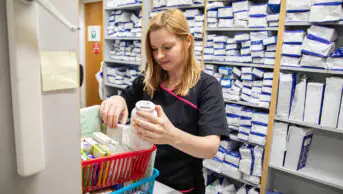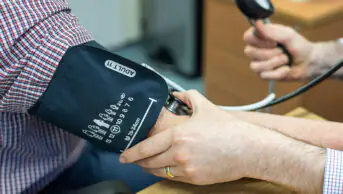
Wes Mountain/Shutterstock.com
The pharmacy profession is currently experiencing unprecedented change. With the integration of independent prescribing into the MPharm degree, we are witnessing a fundamental shift in pharmacy education and practice. However, this transition period has revealed a significant challenge: a national shortage of designated prescribing practitioners (DPPs) to support both current pharmacists, who are aspiring independent prescribers (IPs), and foundation year pharmacists from 2025 onwards.
The shortage of DPPs has created a bottleneck in professional development for existing pharmacists. Despite growing numbers eager to enhance their clinical skills and improve patient care through prescribing, many find themselves unable to progress owing to the difficulty in securing a DPP.
A survey by The Pharmaceutical Journal in April 2024 revealed that 52% of community pharmacists consider a lack of access to DPPs as a barriers to them becoming an IP. The same goes for 21% of hospital pharmacists and 16% of GP pharmacists.
As a result, pharmacy bodies have called for integrated care boards to run “matchmaking” services on a regional level to support prescribing students in finding DPPs.
But this has been an ongoing problem for several years that we have sought to help fix for pharmacists using our GP network.
Connecting DPPs and students
In 2020, we noticed a recurring pattern among the pharmacists we work with. Those who were training to become IPs were either losing their DPPs partway through their learning in practice period or struggling to find one to begin with.
We witnessed firsthand the frustration of capable professionals feeling stuck in their career progression and we had six pharmacists reach out to us for help to secure a DPP. As a clinical service provider to GPs, we have an extensive network of potential DPPs and, ultimately, we were able to help everyone who reached out to us. Initially, we thought that this was a short-term problem, but it carried on for years until we decided to do something about it by launching DPP Connect in 2024.
Pharmacists can match themselves with an appropriate DPP based on their learning needs, specialty interests and geographical location
Since then, DPP Connect has grown significantly in response to increasing demand. By using existing relationships with GP practices and experienced prescribers through our GP service provider, Clinical Pharmacist Solutions, DPP Connect has been able to create reliable and sustainable mentoring partnerships. As of February 2025, there are now 73 students connected with a DPP.
How the service works
Our service operates through an online platform, combined with support from our training coordinator, to create learning partnerships. When pharmacists join DPP Connect, they gain access to our digital platform that is designed to streamline the DPP matching and IP learning processes. Using the platform, pharmacists can match themselves with an appropriate DPP based on their learning needs, specialty interests and geographical location.
Our training coordinator keeps in contact with both parties throughout the placement, with e-learning materials provided through our platform to pharmacists. Our team remains accessible throughout the placement period, offering support whenever needed, be it clinical or administrative. This approach has proven successful, with 83% of pharmacists rating their communication with DPPs as ‘very good’ or ‘excellent’. The service creates a supportive learning environment where both DPPs and pharmacists can thrive, ensuring the 90 hours of supervised practice is meaningful and productive.
The success of our programme is reflected in the feedback from participants:
- 100% of pharmacists met their learning objectives and would recommend our service;
- 83% reported their DPP exceeded their expectations;
- 100% had access to various healthcare professionals during their learning;
- 100% of students rated their overall experience with the DPP Connect as ‘very good’ or ‘excellent’.
Looking ahead
With the first cohort of prescribing trainees beginning their foundation training in July 2025, we face a critical period where two groups will simultaneously need DPP support: the new generation of pharmacy students and current pharmacists pursuing their IP qualification. We are currently expanding our DPP network through GP workforce engagement with the aim of creating a sustainable network of DPP pharmacists that ensures support is available where needed.
We envision stronger collaboration between independent providers, NHS England and ICBs to create sustainable solutions
The NHS’s recent rollout of ‘Teach and Treat’ programmes through Integrated care boards (ICBs) represents progress, though each ICB is currently seeking solutions independently. The private sector has demonstrated early success in this area and the public sector could benefit from collaborating with private providers to share learnings rather than starting from scratch.
Looking ahead, we envision stronger collaboration between independent providers, NHS England and ICBs to create sustainable solutions. We are already engaging in productive discussions with colleagues at NHS England and the National Pharmacy Association about enhancing DPP capacity and supporting pharmacist development.
A coordinated national approach, potentially including a national DPP matchmaking service, could help address the current mismatch between DPP availability and student needs.
The future of pharmacy practice depends not only on successfully navigating this transition period but also on building lasting partnerships across the healthcare sector to ensure robust support for the next generation of prescribing pharmacists.
Ruhina Kassam is chief executive of Clinical Pharmacist Solutions and director of professional standards and quality assurance at DPP Connect. Kassam was also a finalist in The Pharmaceutical Journal’s 2024 ‘Women to Watch’ list


